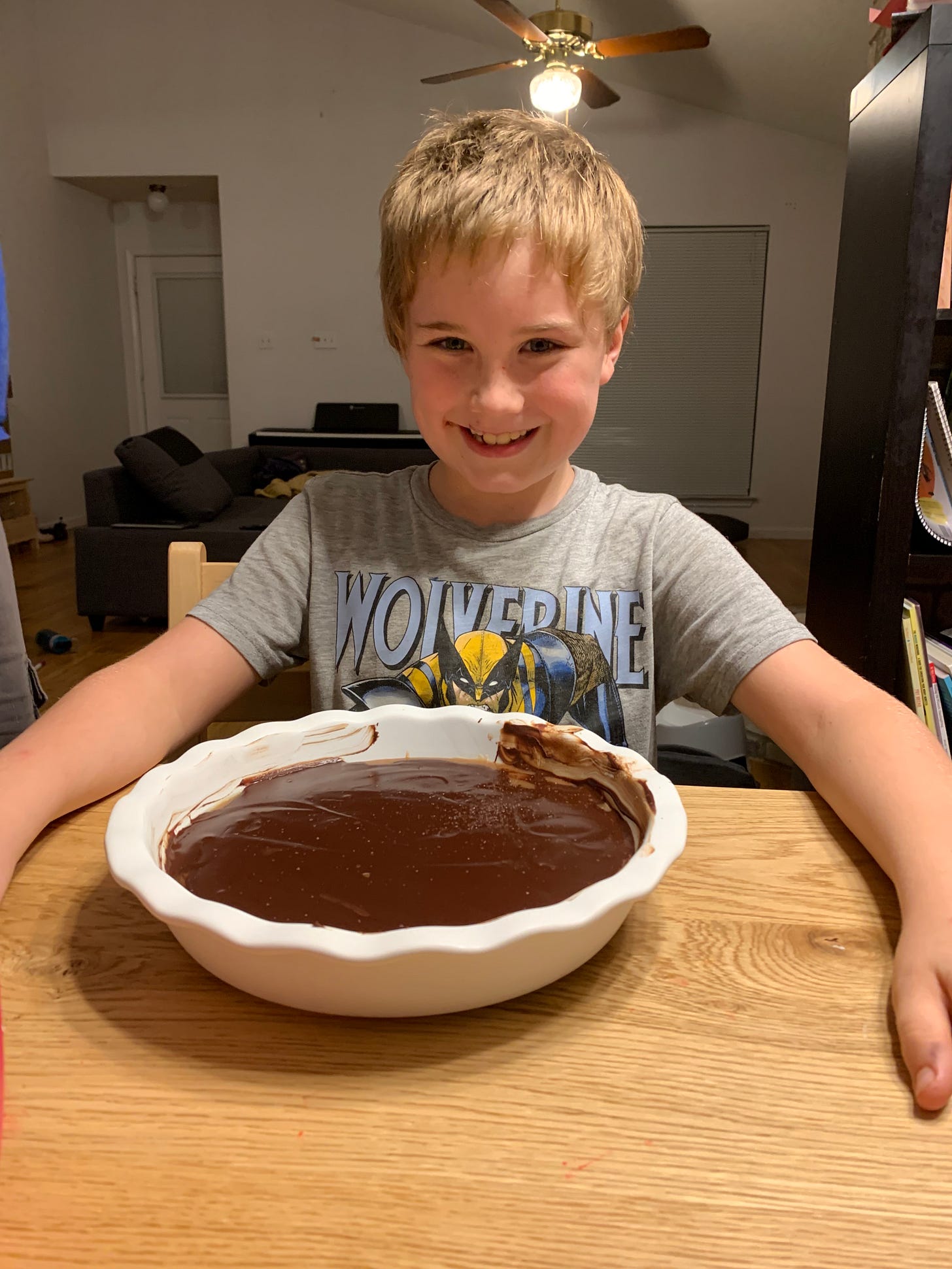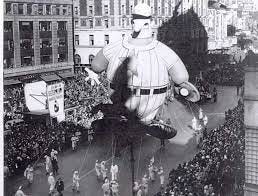Where I rant about Thanksgiving for a few paragraphs
Hi friends,
I usually send these out every other Thursday, but on Wednesday I got my booster, and so I spent yesterday feeling like I was going to die. It was slightly better than the second booster, but not much. I’ve heard anecdotally that nursing moms have worse side effects than the general population, so that’s what I’m chalking it up to…but jeez. Maisie better appreciate those sweet antibodies.
Yesterday, a reader and fellow parenting blogger (check her out here!) emailed me “and what the heck am I supposed to tell my kids about Thanksgiving???” and I wrote her back something like “ugggghhhhh.” But then I decided that I should write a little something in case other people are also stuck in the “uggghhhh” like I am.
I genuinely feel like Thanksgiving is an example of why Americans can’t have nice things. Look: a holiday where we find some people we like, cook a big meal together, reflect on good things in our lives, and then eat pie sounds like a great thing. There are no mythical beasts to manage (though I love what Crunk Feminists wrote here about progressive parents and Santa), there are no gifts to coordinate through the lens of equity guilt, it’s just food. And I love food.
(Behold, Cyrus and I adapted Smitten Kitchen’s Chocolate Caramel Tart…and it was good).
In my pre-children adult life, Thanksgiving was always some kind of sprawling friends affair, and I deeply loved it. Sometimes we would hang out with friends in the city. Other times, it was my college friends all coming together for a big sleepover cooking fest, other times we would invite friends who didn’t go home. Often that left our international friends, so we would have Tajik-Moldovan-Indonesian or Saudi-Malaysian-Ghanaian Thanksgiving parties, and literally nothing was more lovely (or more American) to me than the hodgepodge of food and friends from all over the place making our house warm.
It wasn’t until I had kids that I started realizing the extent to which this holiday is used in schools as a vehicle for nation-building and myth-making. One of the moms in a group I’m apart of wrote that her son was given zeros on an assignment because she didn’t allow him to participate in an activity where the class decorated pillow cases as Indian chiefs, made cardboard headdresses, and paraded around the school. People! In the year of 2021. What is happening.
I remember, of course, doing all of this when I was a child. Making feather headdresses. Casting my reluctant brothers as turkeys as we reenacted the first Thanksgiving. Somehow this casual racism hasn’t fallen out of our schools and our culture, no matter how hard we critical race theory warriors try.
If not equally problematic then equally exhausting (from my view) are the attempts to use the day as an indigenous love fest. If I could have a dollar for every time I’ve seen the post from the about the Wampanoag and Thanksgiving shared in the past week, and another dollar for every argument I’ve seen over how the guide is, in fact, racist, I’d be able to buy all of us a slice of pie.
I glanced at it, and it does, predictably, seem pretty problematic, but the whole debate raging across social media right now is problematic too. White parents are trying to assuage their guilt about this holiday by doing a crash course on indigenous cultures, and it doesn’t do any one any good. People wind up upset, no learning actually takes place, and it’s just a mess. It feels like a lot of the debate just re-centers whiteness in unproductive ways.
—
So, how do you talk to your kids about Thanksgiving? I’ll admit that I’m at a slight advantage here, because my kids don’t go to public school right now. The co-ops that Cyrus is in didn’t mention anything at all. Alma’s school is closed for Gratitude Week. Great. Love it.
I will say that, in all the battles one could pick with schools, this one is likely worth waging. If my kids were coming home with problematic crafts or stories, I’d have a chat with their teachers about cultural appropriation and share some alternative resources. I’d opt out and ask for alternative activities for anything that involved reenacting the first Thanksgiving or participating in the kinds of parades I wrote about above. Above all, if you have to do something in school about the holiday, I’d suggest a framing around gratitude instead of history.
As you know, the first step in my attempt to educate my kids about anything is to control the origin story. We asked our parents not to buy the kids any books about Thanksgiving with pilgrims or Native people in them. We have a great book collection, but out Thanksgiving offerings are admittedly pretty sparse. We have one book I’m pretty sure was written by an algorithm (it talks about foofy turkeys…?) and I have added books like the lovely Fry Bread and some other books about food and gratitude. I also have If you Lived During the Plymouth Thanksgiving, which has gotten some good reviews. We’ve asked our families to avoid buying books with pilgrims or featuring images of Native folk sitting down with white folk or really anything like that.
As I’ve mentioned before, my goal is to approach the topic of indigenous culture throughout the year, not timed with holidays we’re trying to atone for. Part of that, for now, with my kids being as young as they are, is to create a practice of gratitude around Thanksgiving that doesn’t mention any of the origin myths of our country. I really love the idea of pausing before what becomes the mania of the Christmas season in my house to talk about why we’re grateful for our lives, and so we’ll do that.
Separately, we’ll continue our work to learn about how people were here for millennia, building great communities. Jim has started a lot of that work in his history lessons with Cyrus, as they study what the medieval world was like, both on this continent and the rest of the world. He’s used Curiosity Chronicles as a jumping off point to decenter Europe as he teaches him history, which is so cool (and maybe a subject of a guest post down the road). But we’re approaching it slowly and carefully, building a foundation so that when they inevitably encounter the stereotypical Thanksgiving story down the road, it will clash with what they know, and they’ll instinctively push back. This, at least, is my hope.
And next week, we’re going to slow our lives down a bit, spend time outdoors and in the kitchen cooking good food, enjoy the time with my parents and count our blessings that we’ve made it this far through the pandemic and can all be together. If I have my way, we’ll watch Miracle on 34th Street (the original, of course), which opens on the Macy’s Thanksgiving Day Parade.
—
What we’re reading:
I’m mostly through Qian Julie Wang’s memoir A Beautiful Country, and it’s just so good. Her family emigrated from China in the 1980s. They were undocumented, which forced her mother, who had been a professor in China, to work in a series of sweatshops in New York City. Qian writes awkwardness and discomfort really well, so the book is hilarious while offering an indictment of capitalism through the eyes of an elementary school girl. I am loving it.
We just read Meet Yasmin! with Alma, and she thought it was fabulous.


